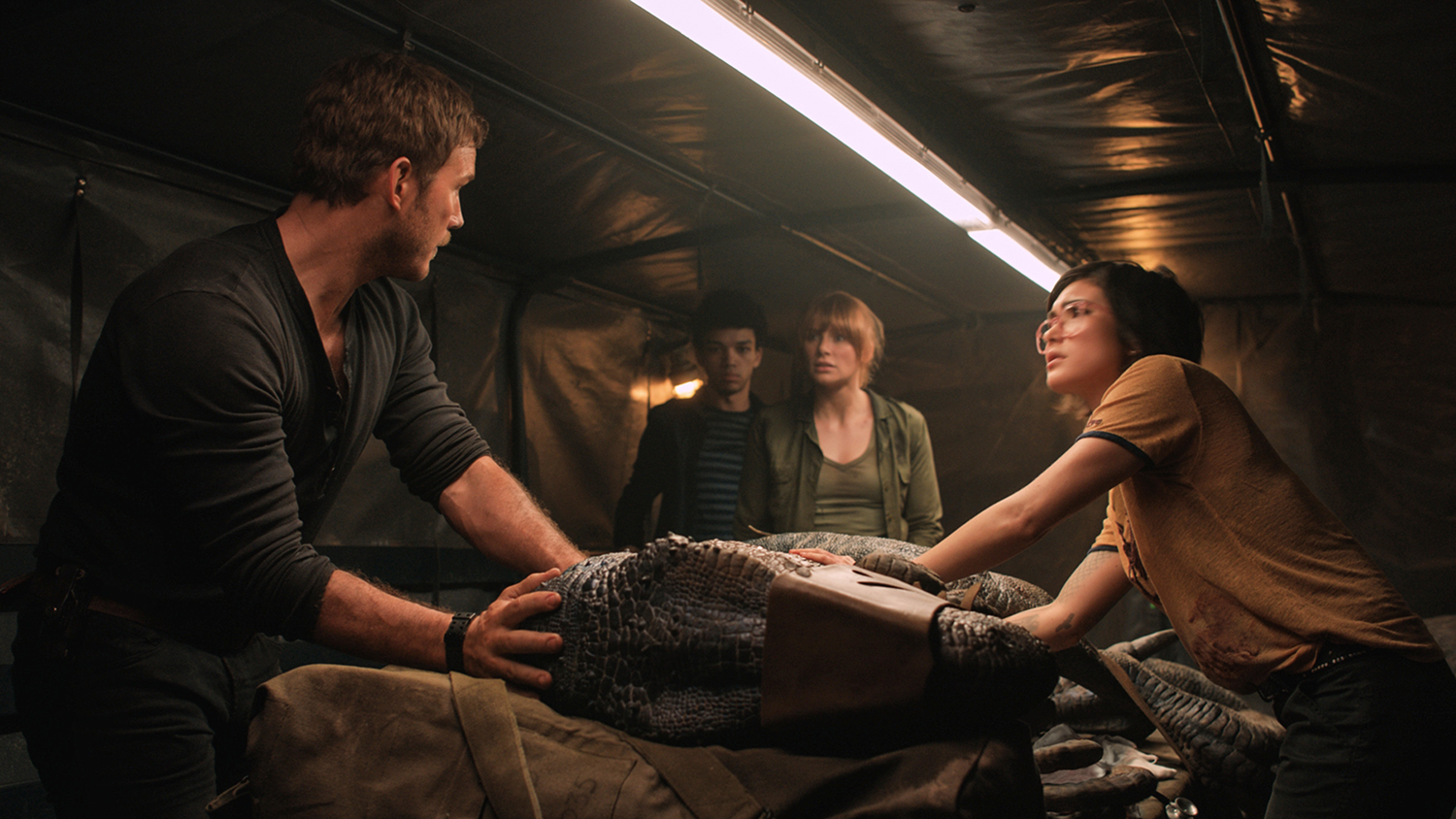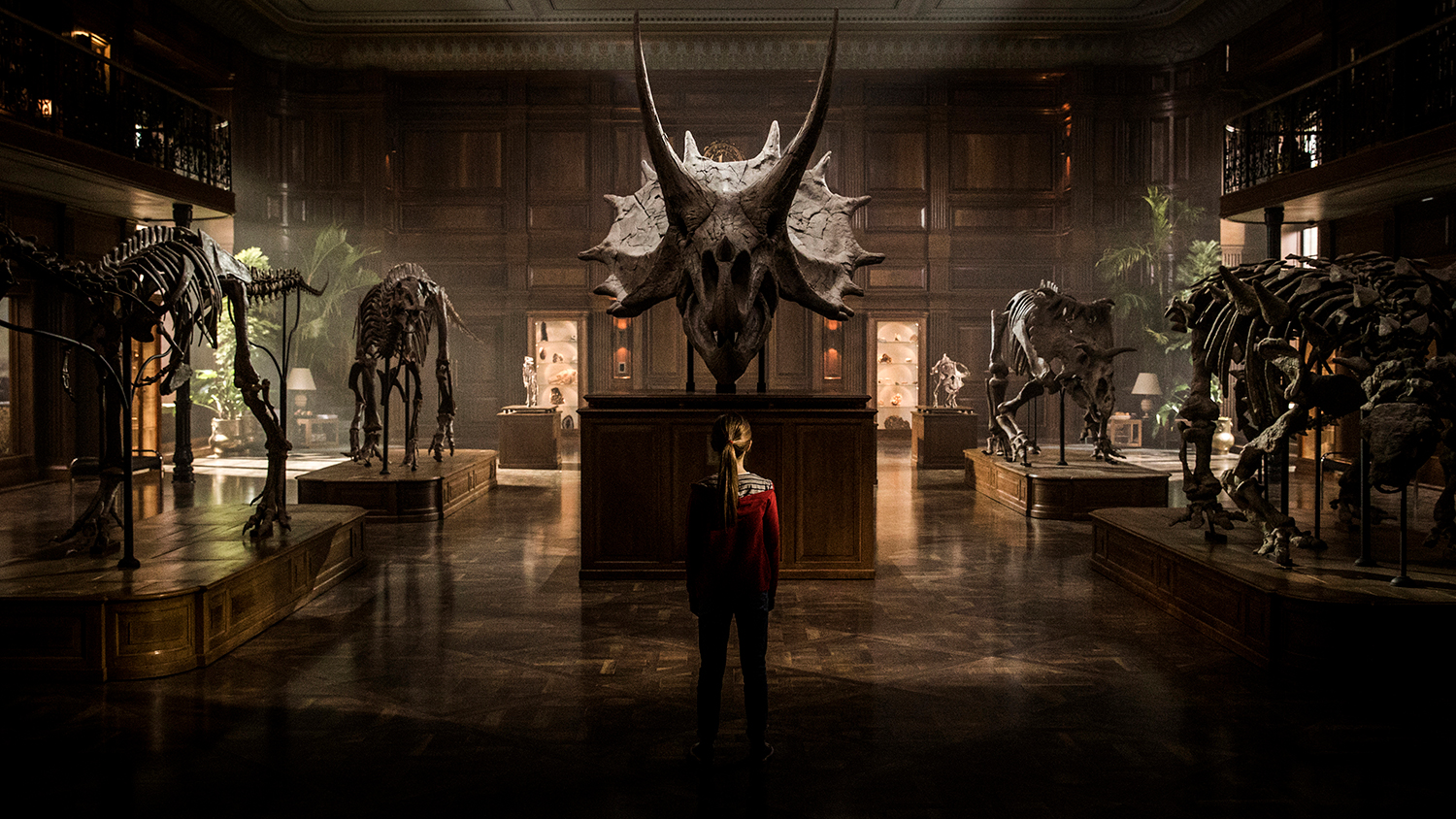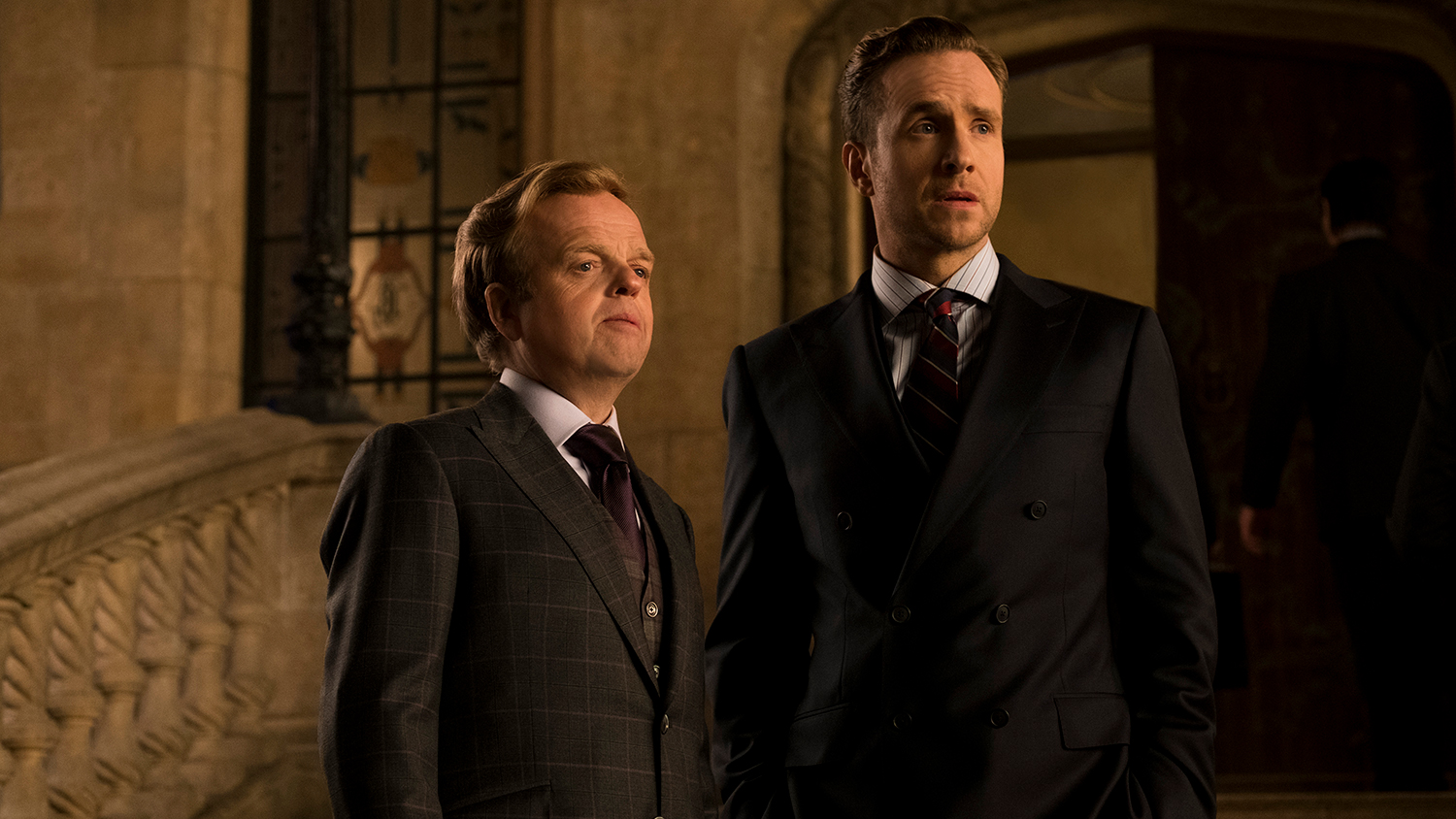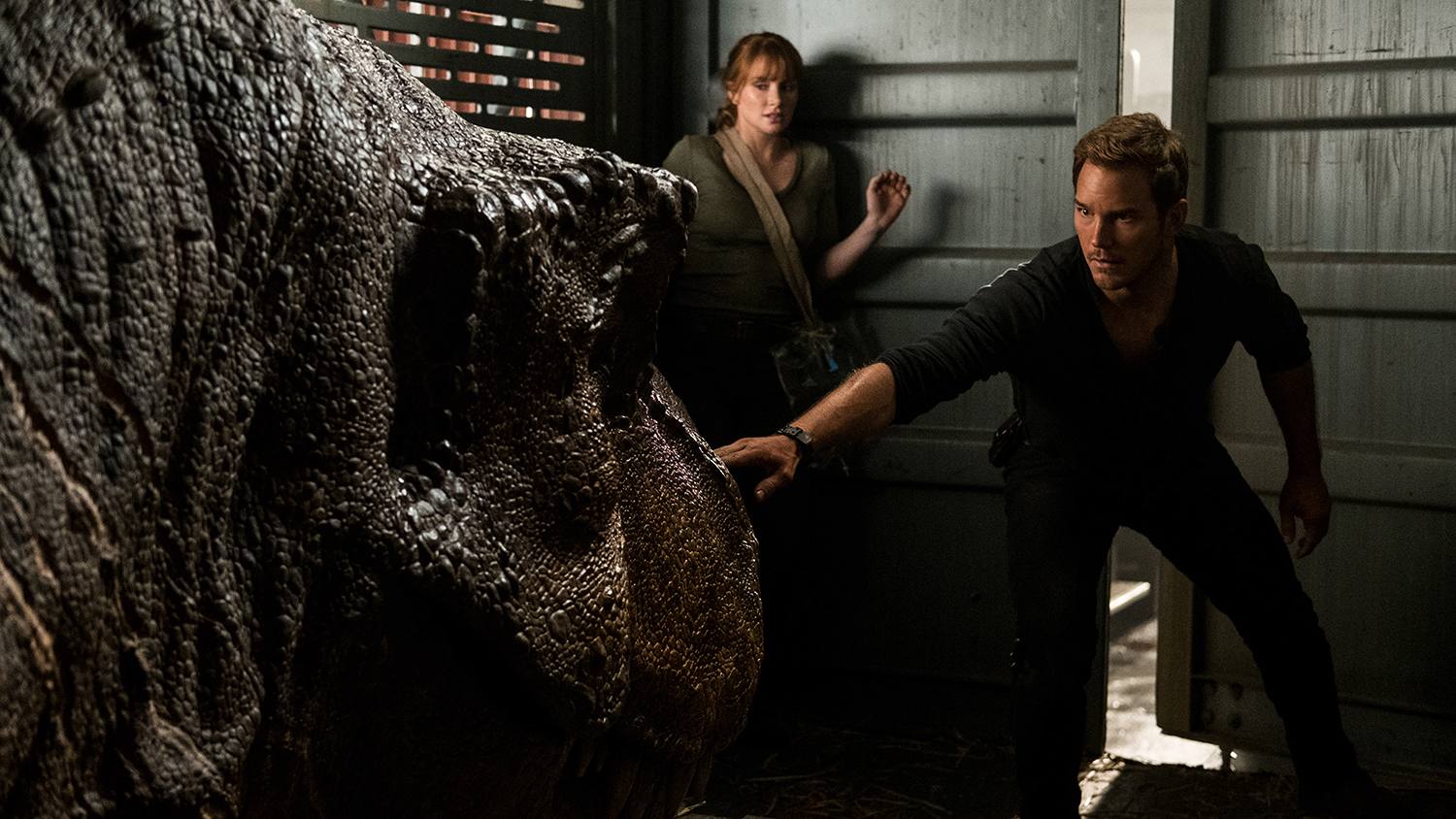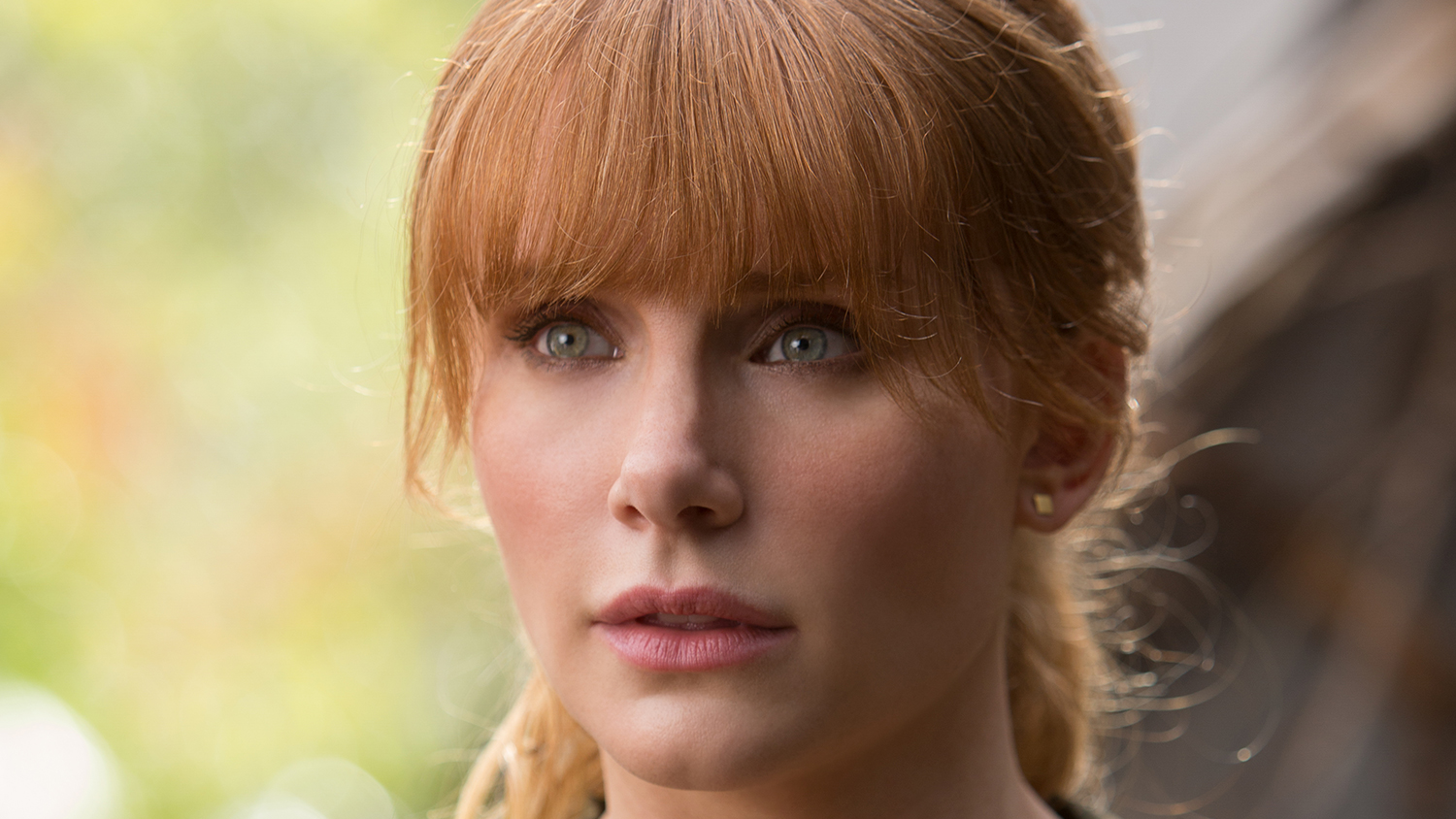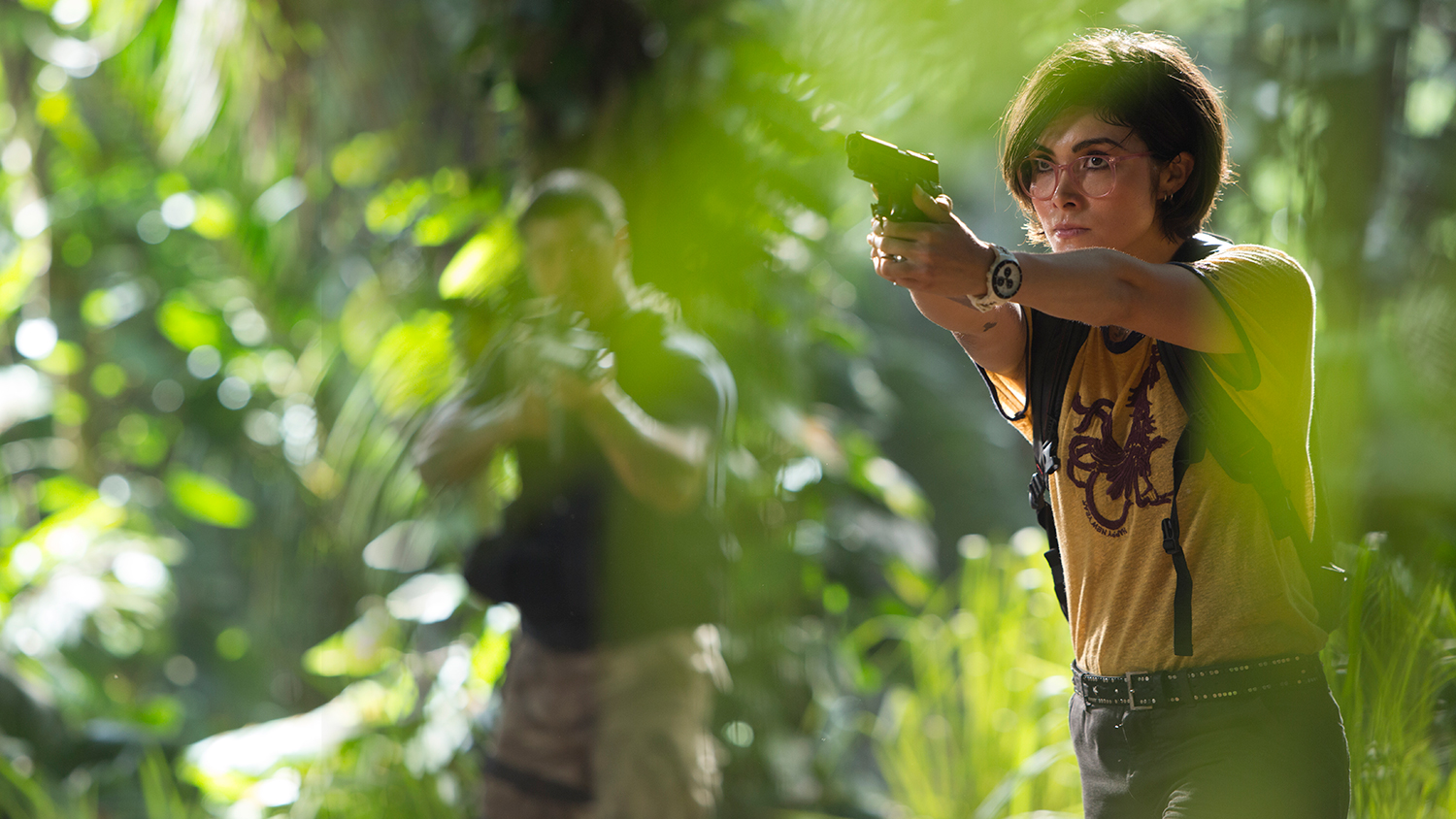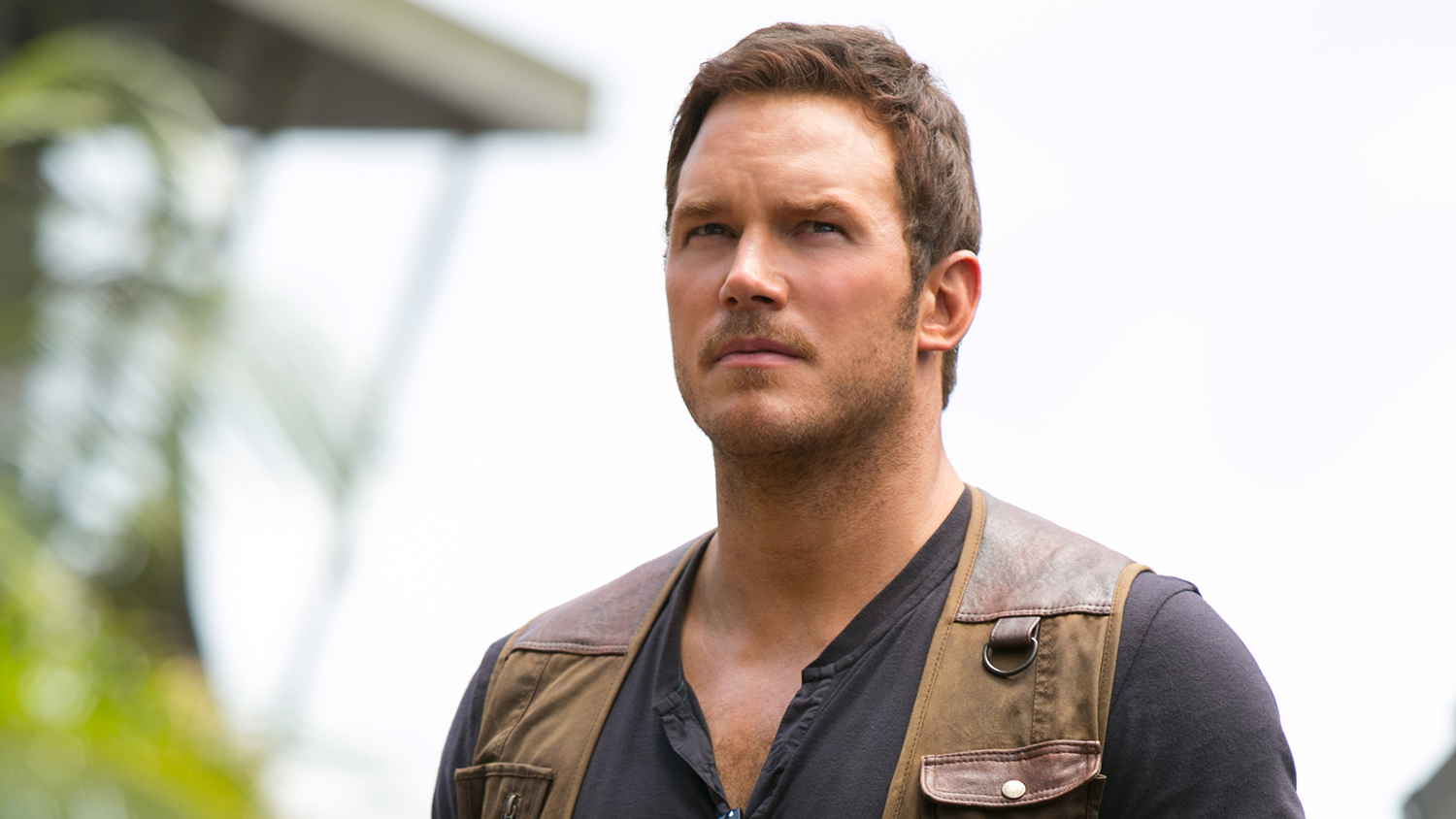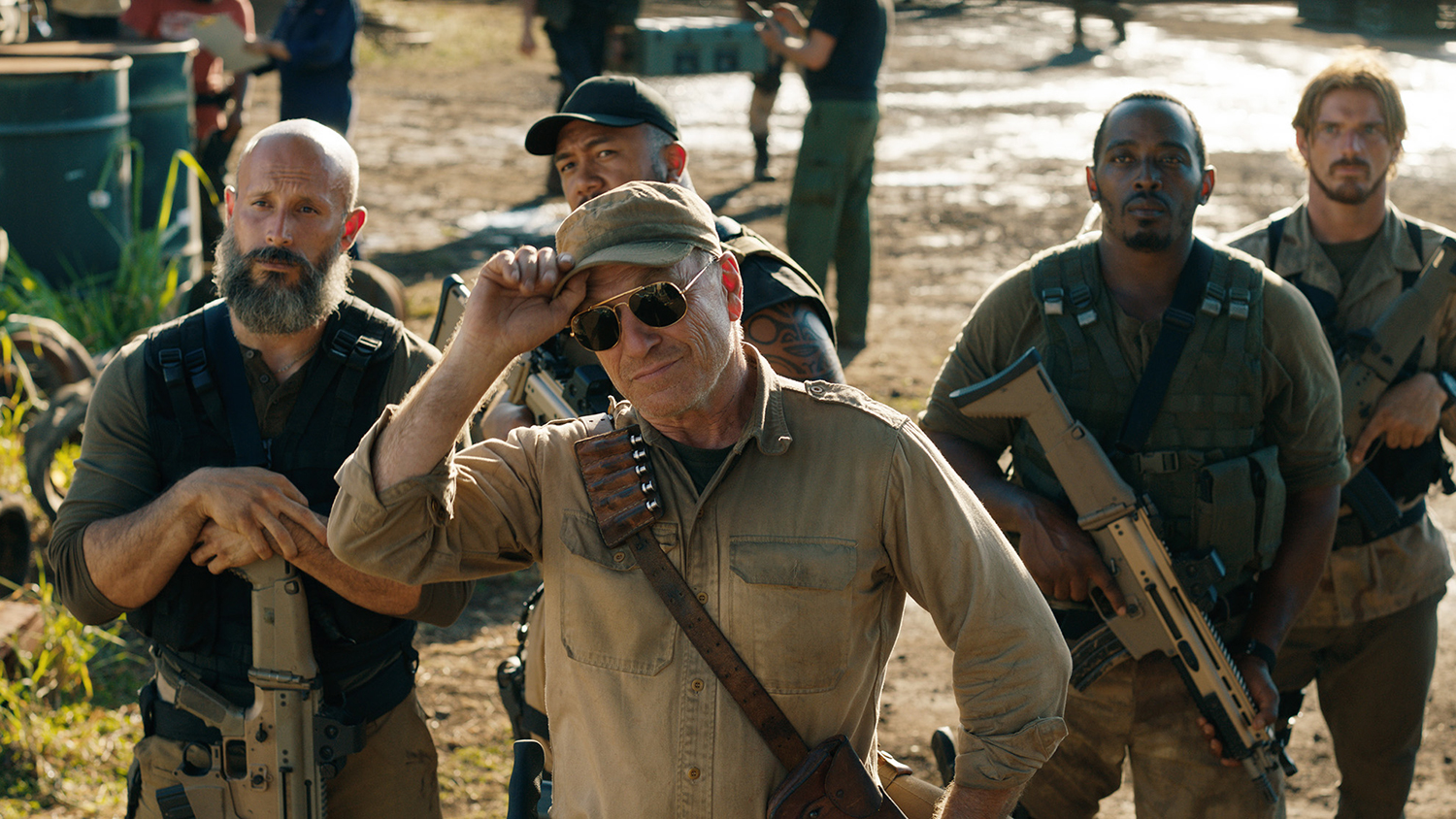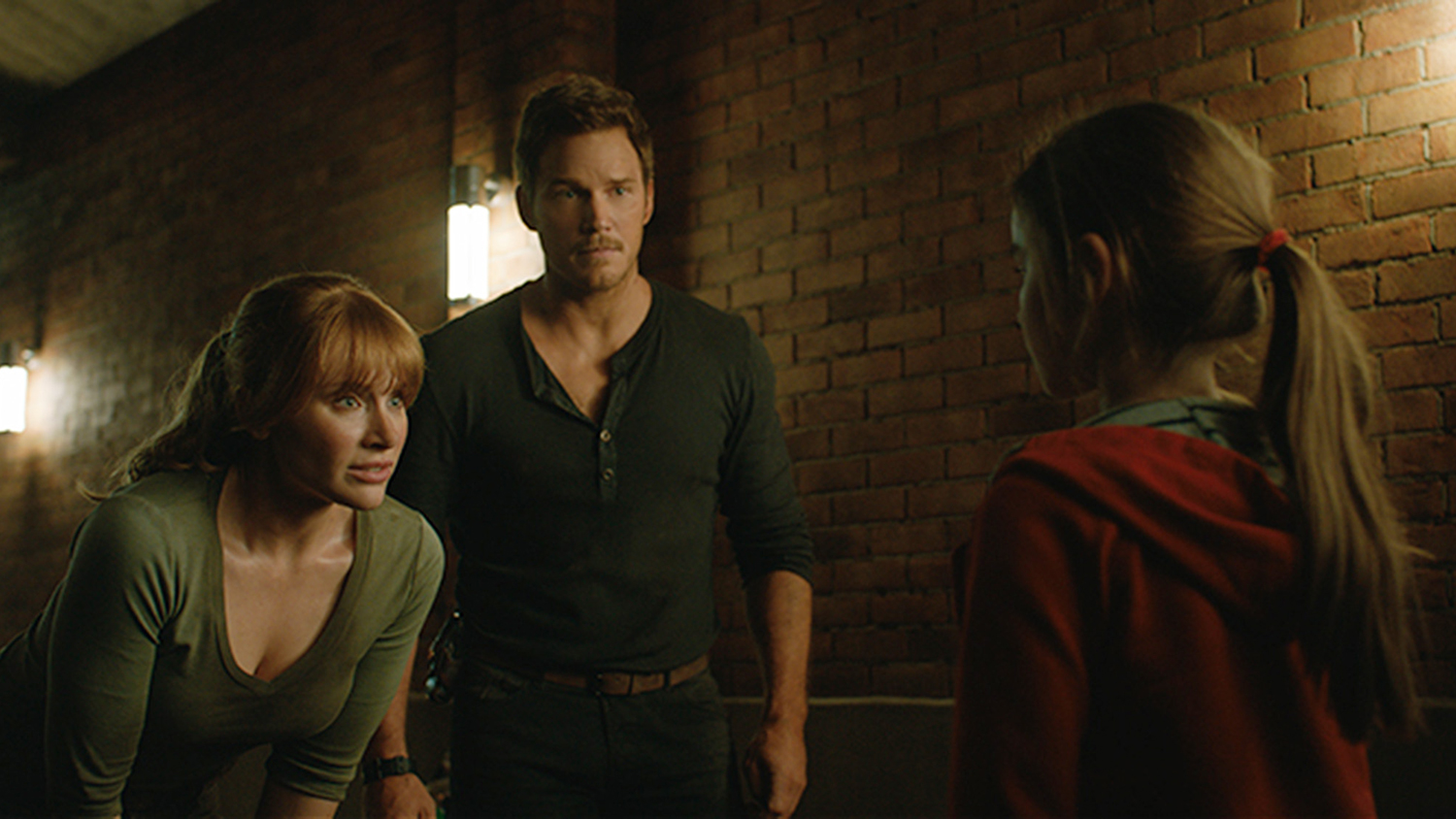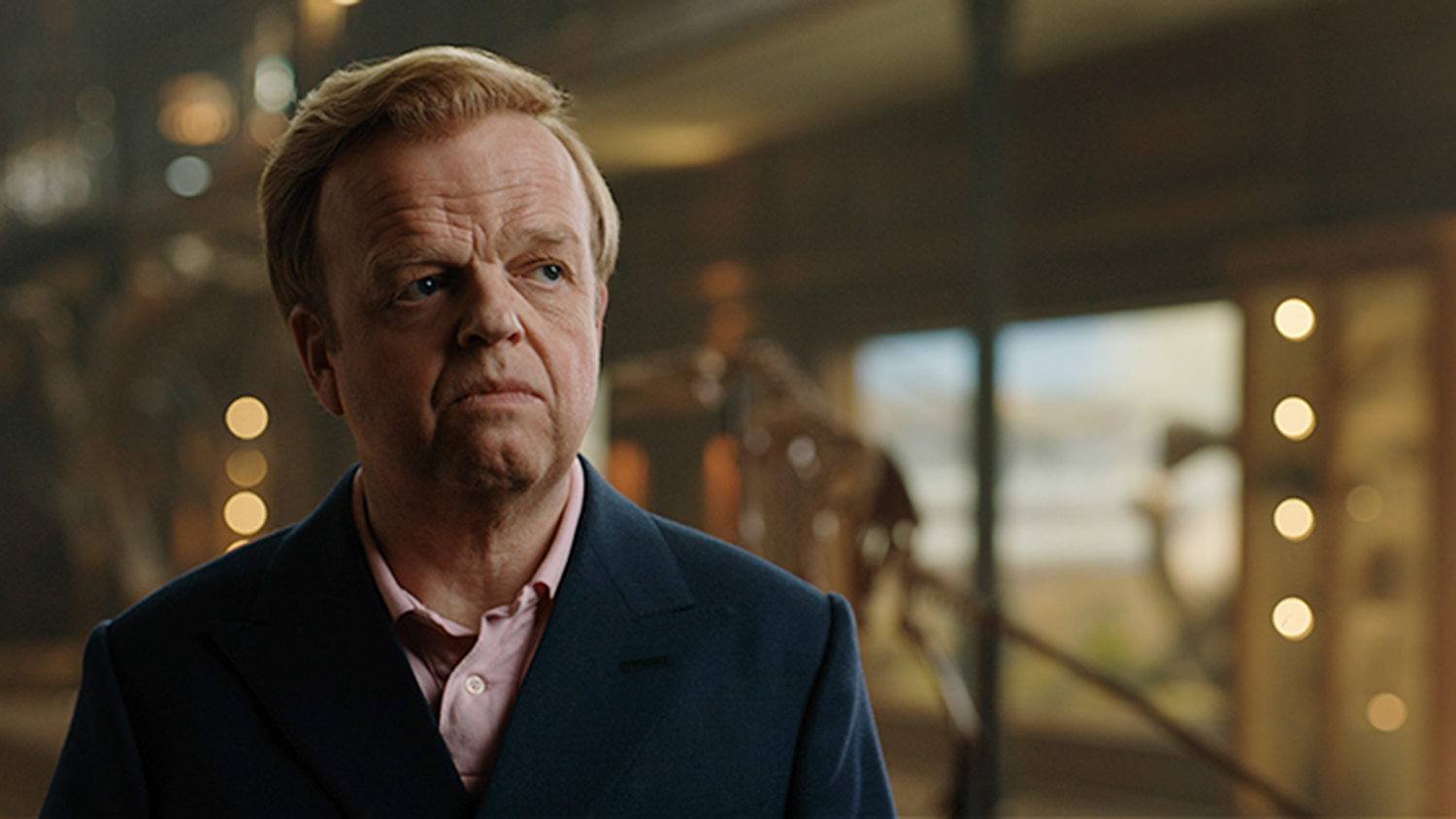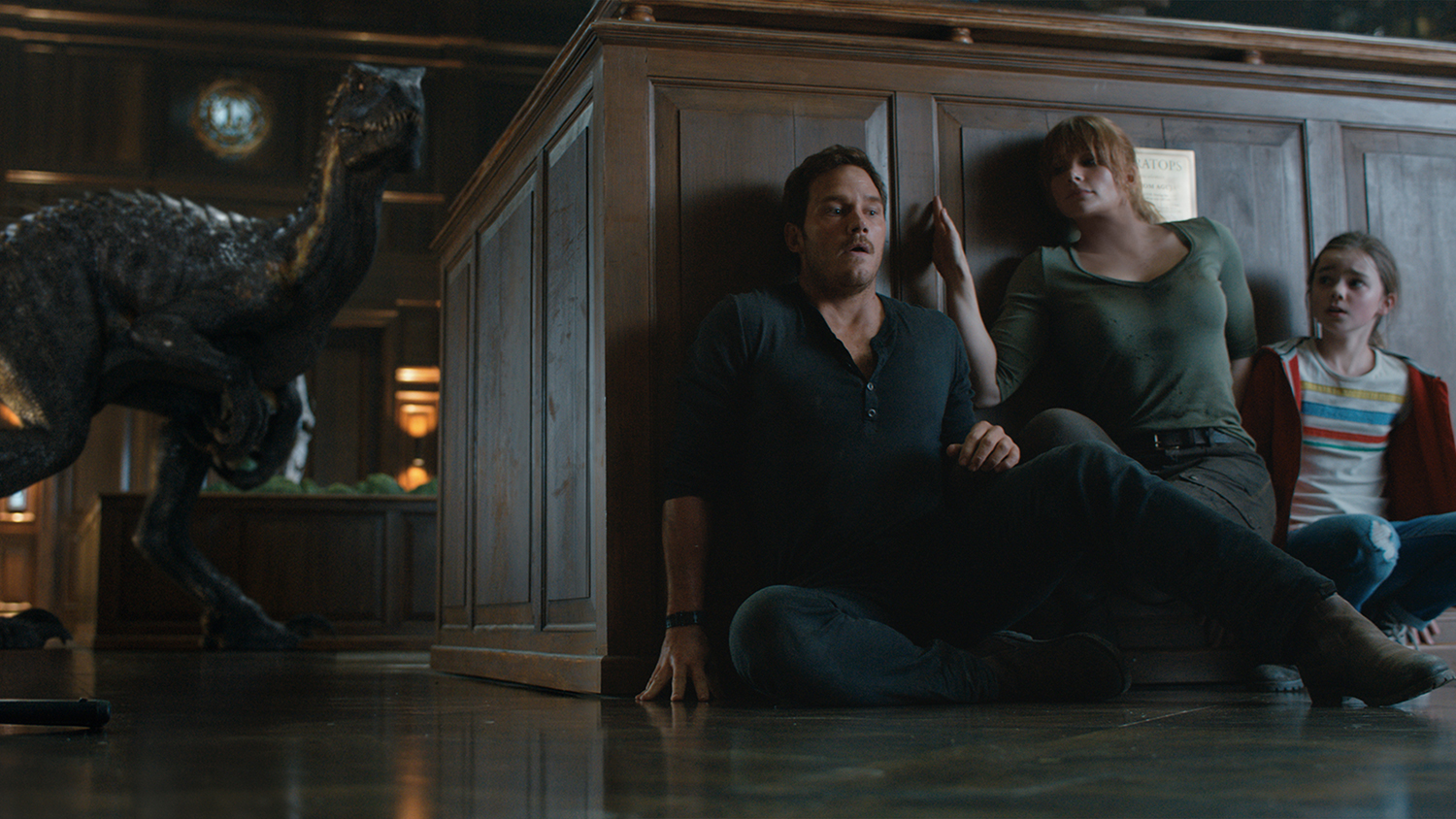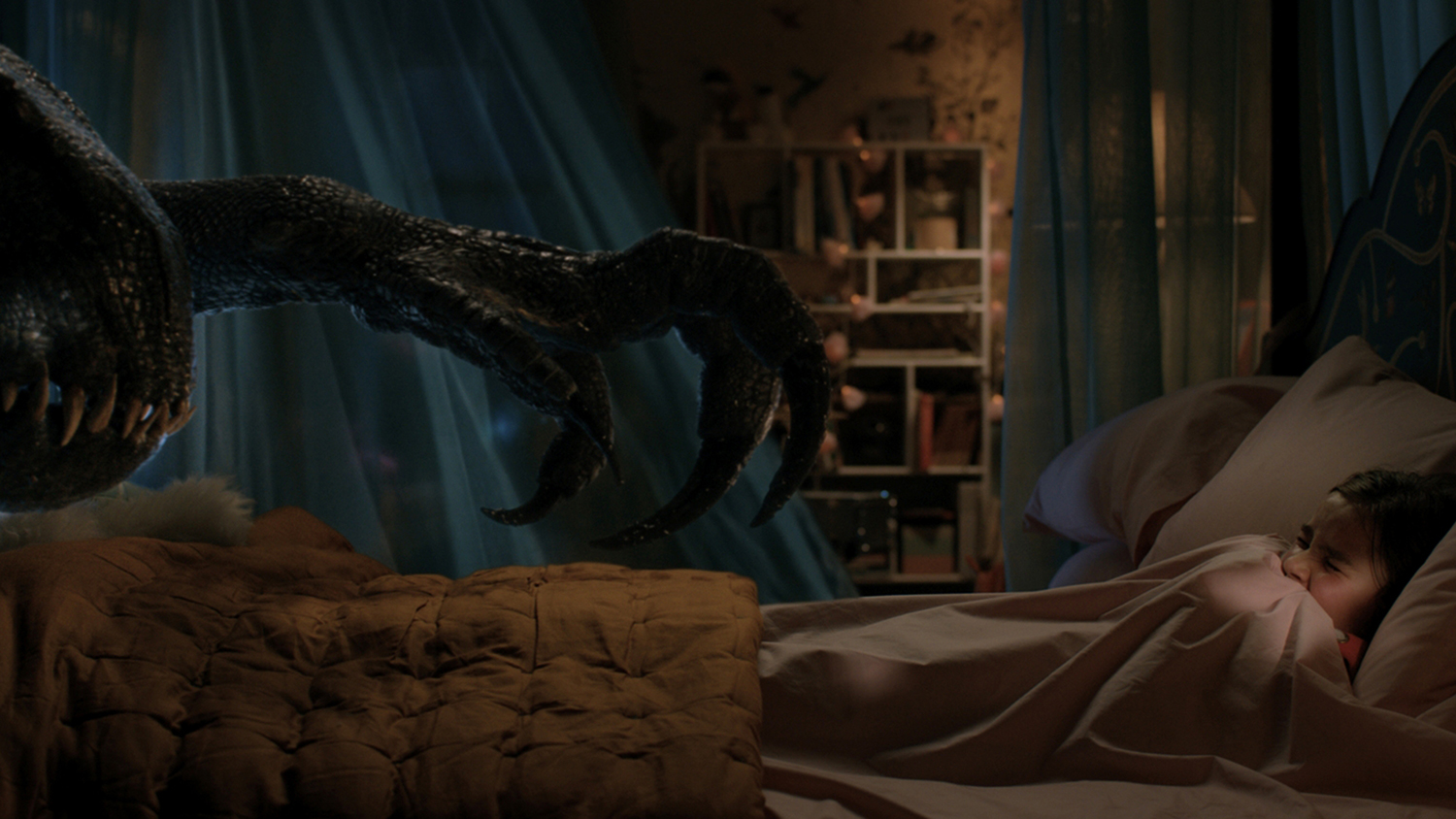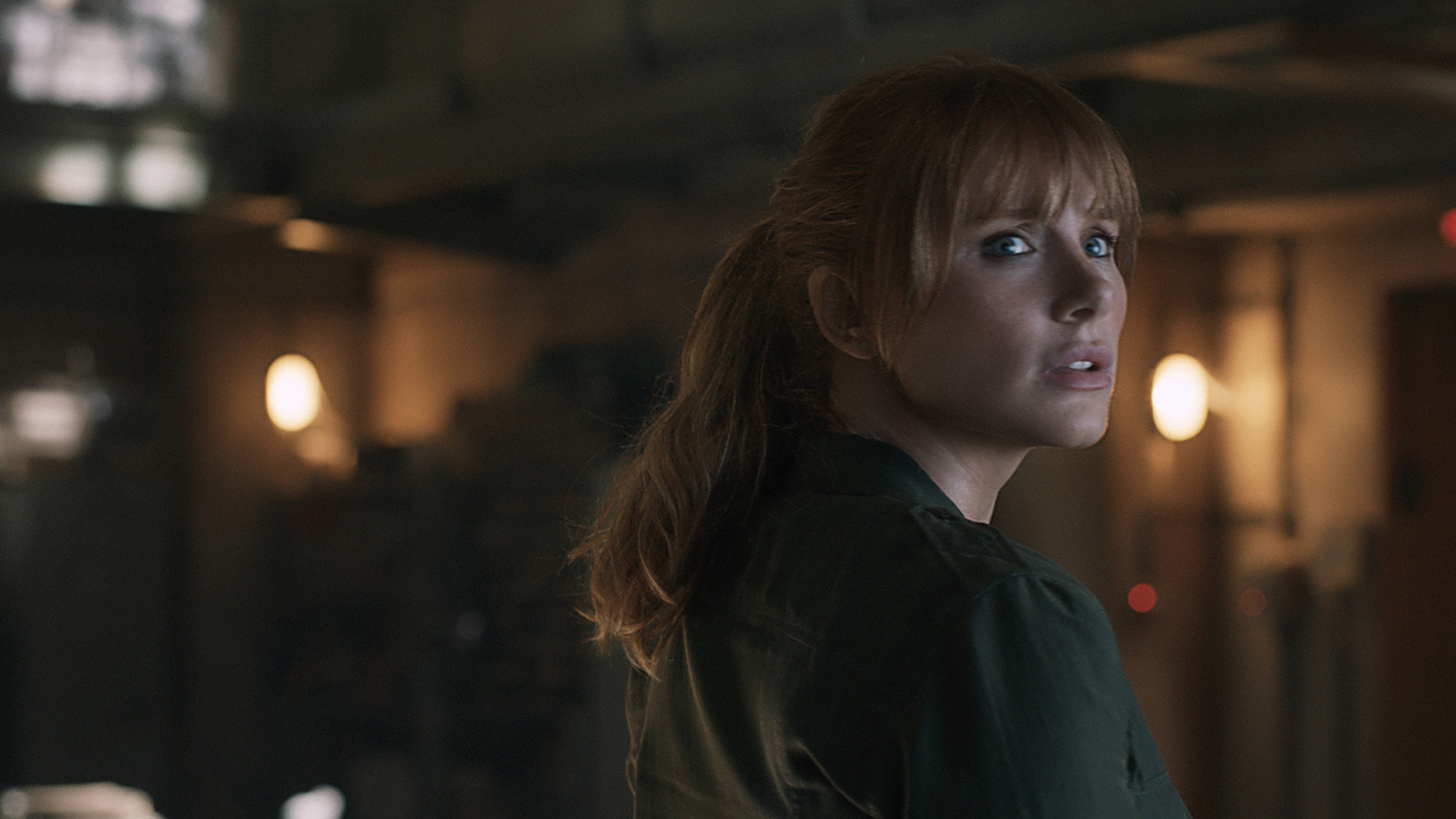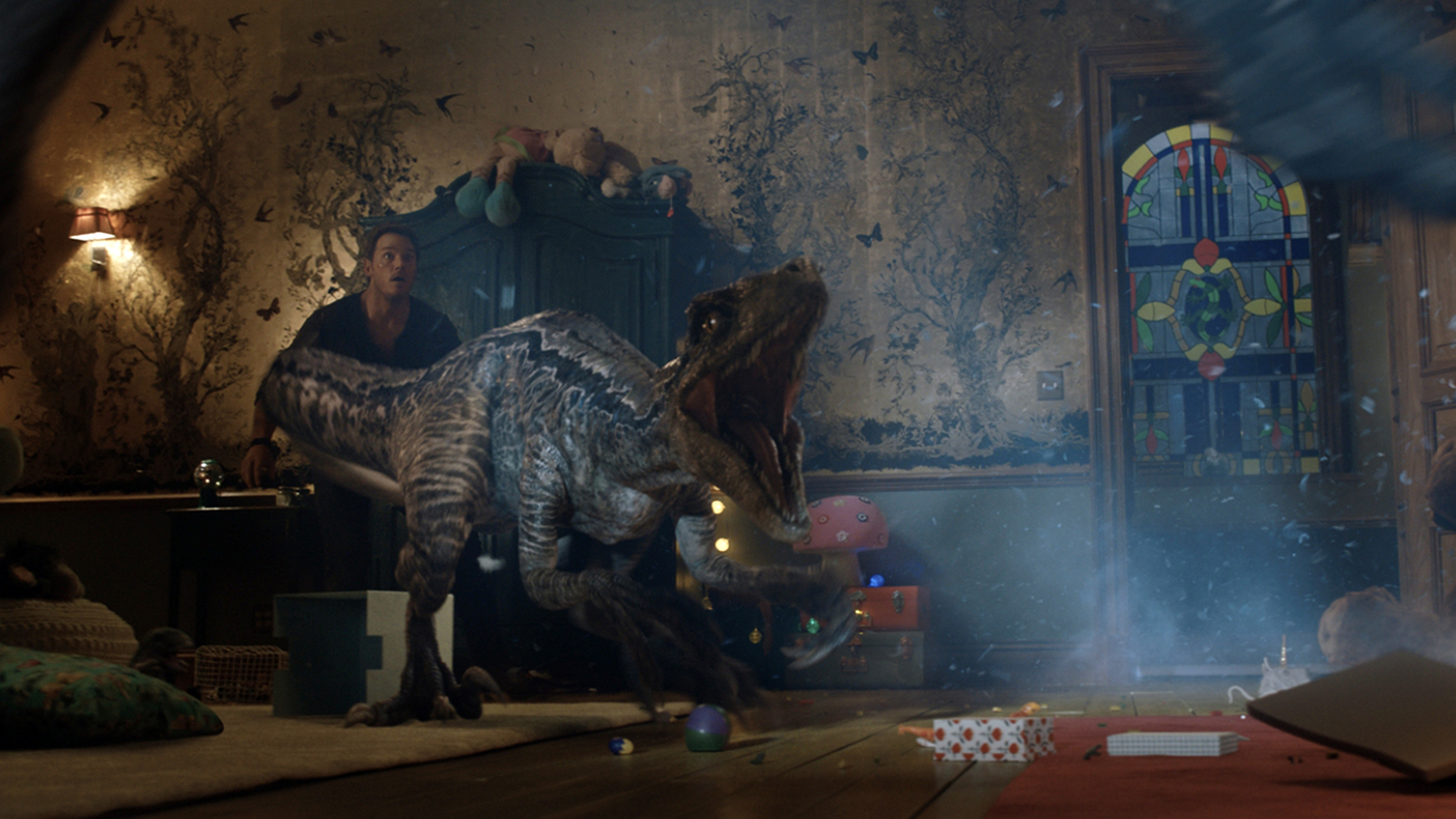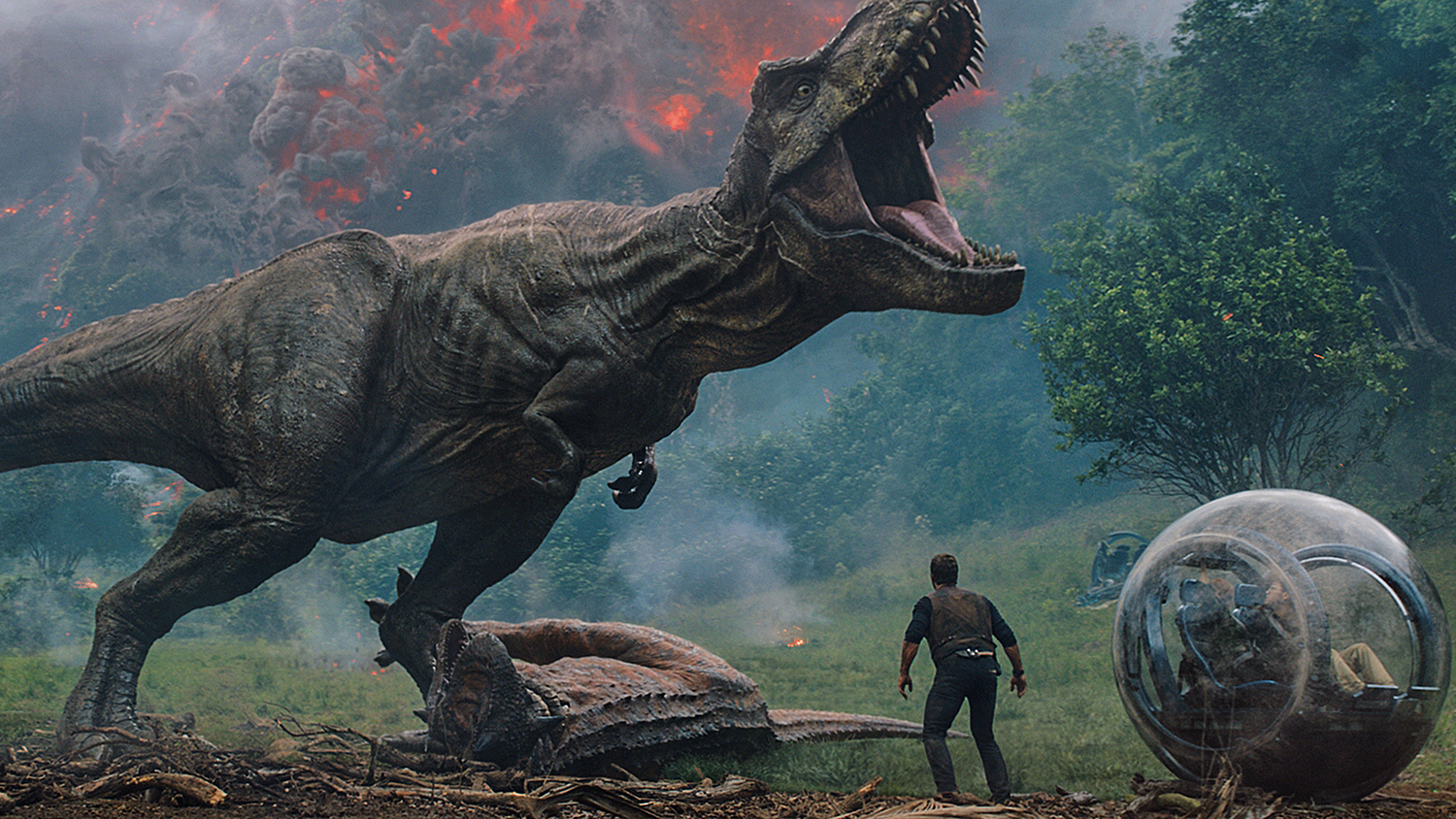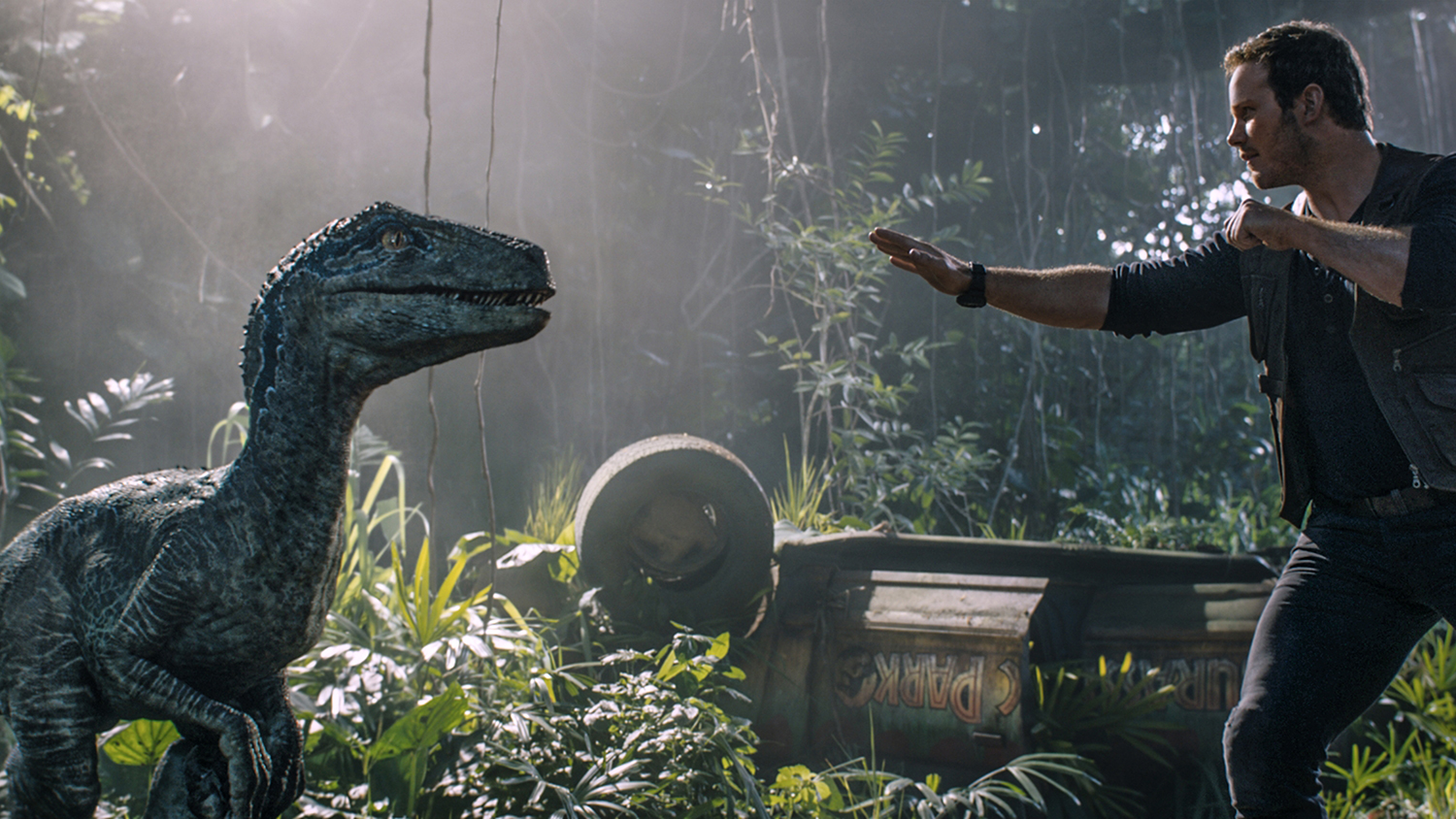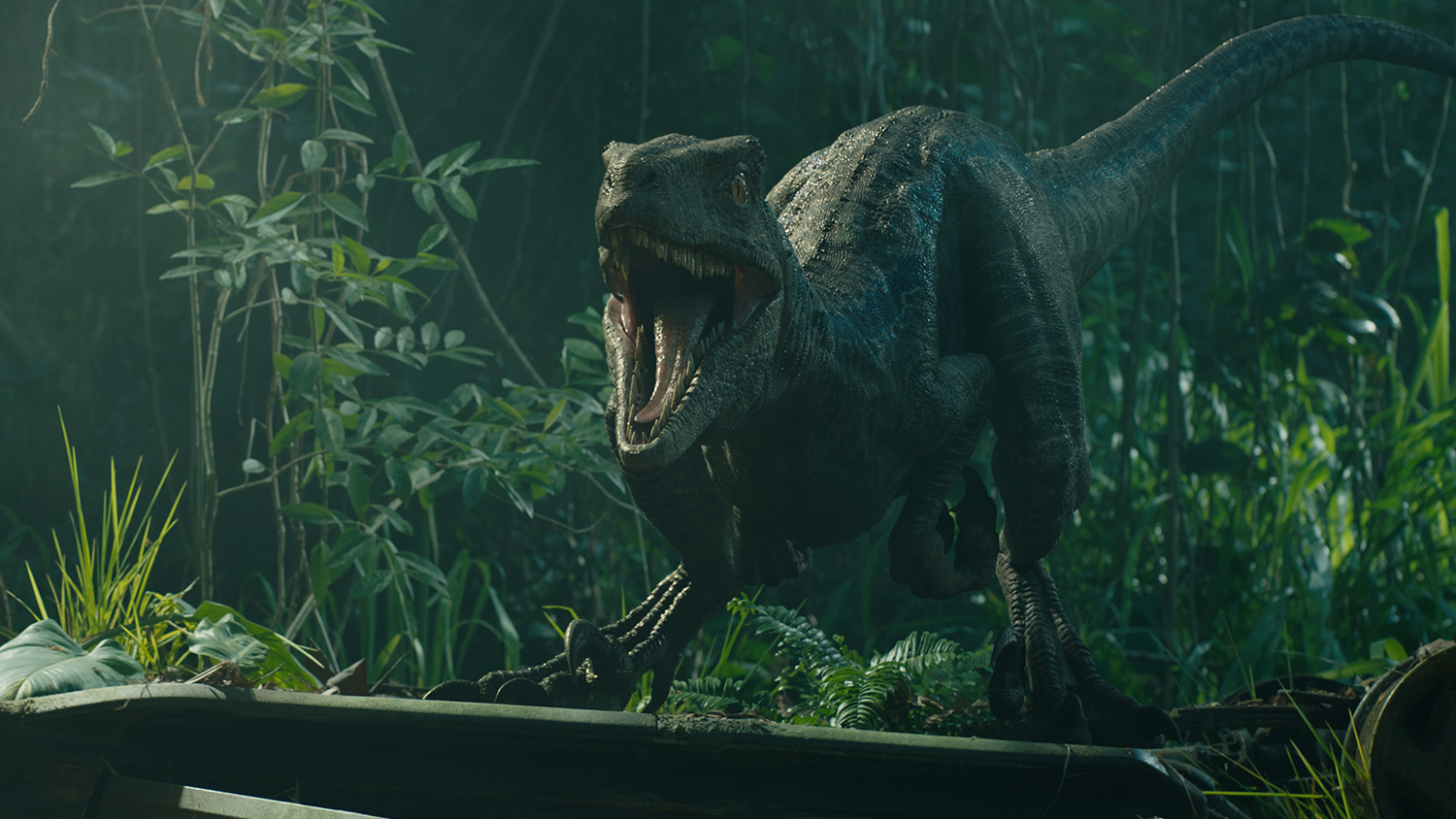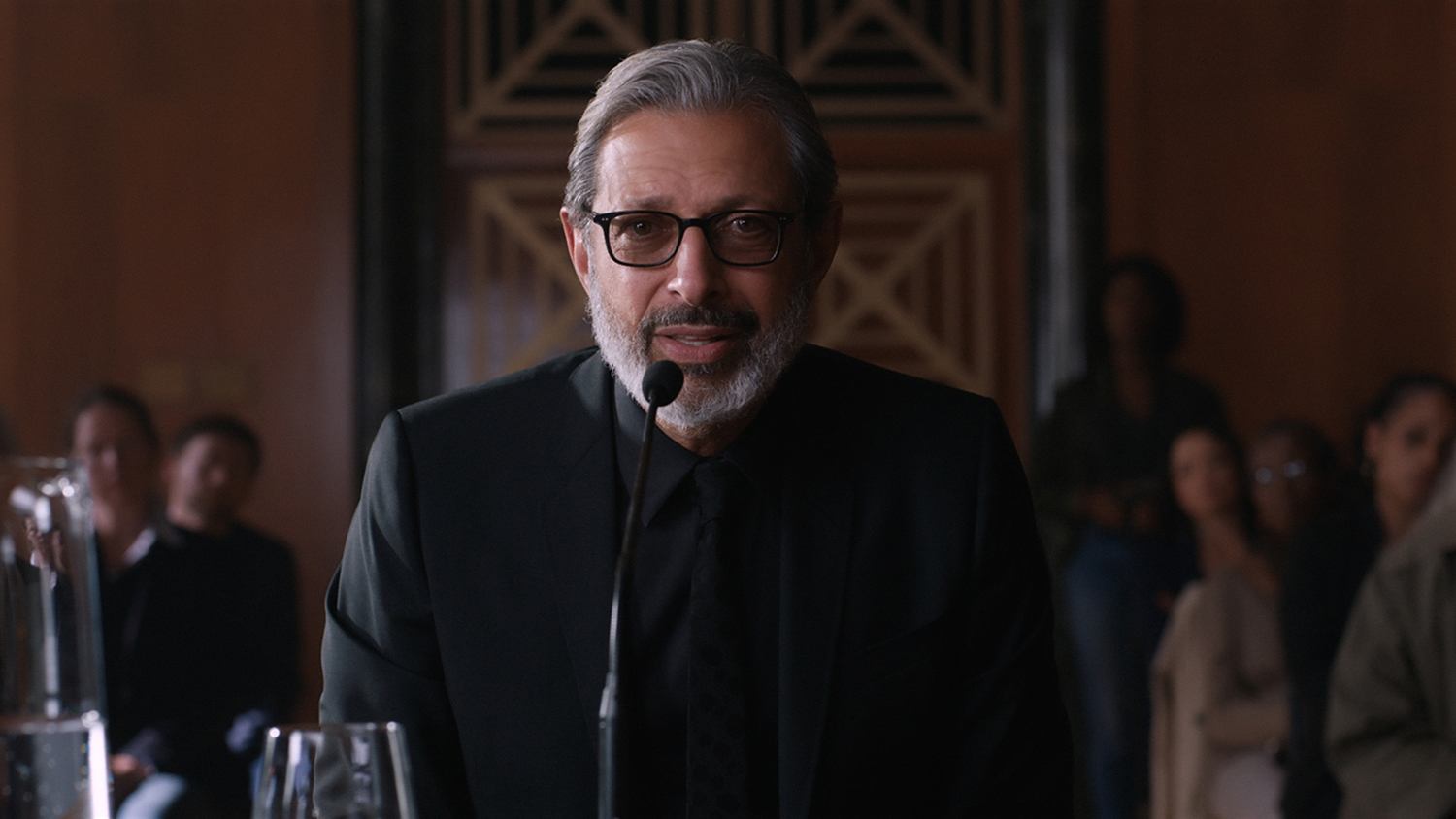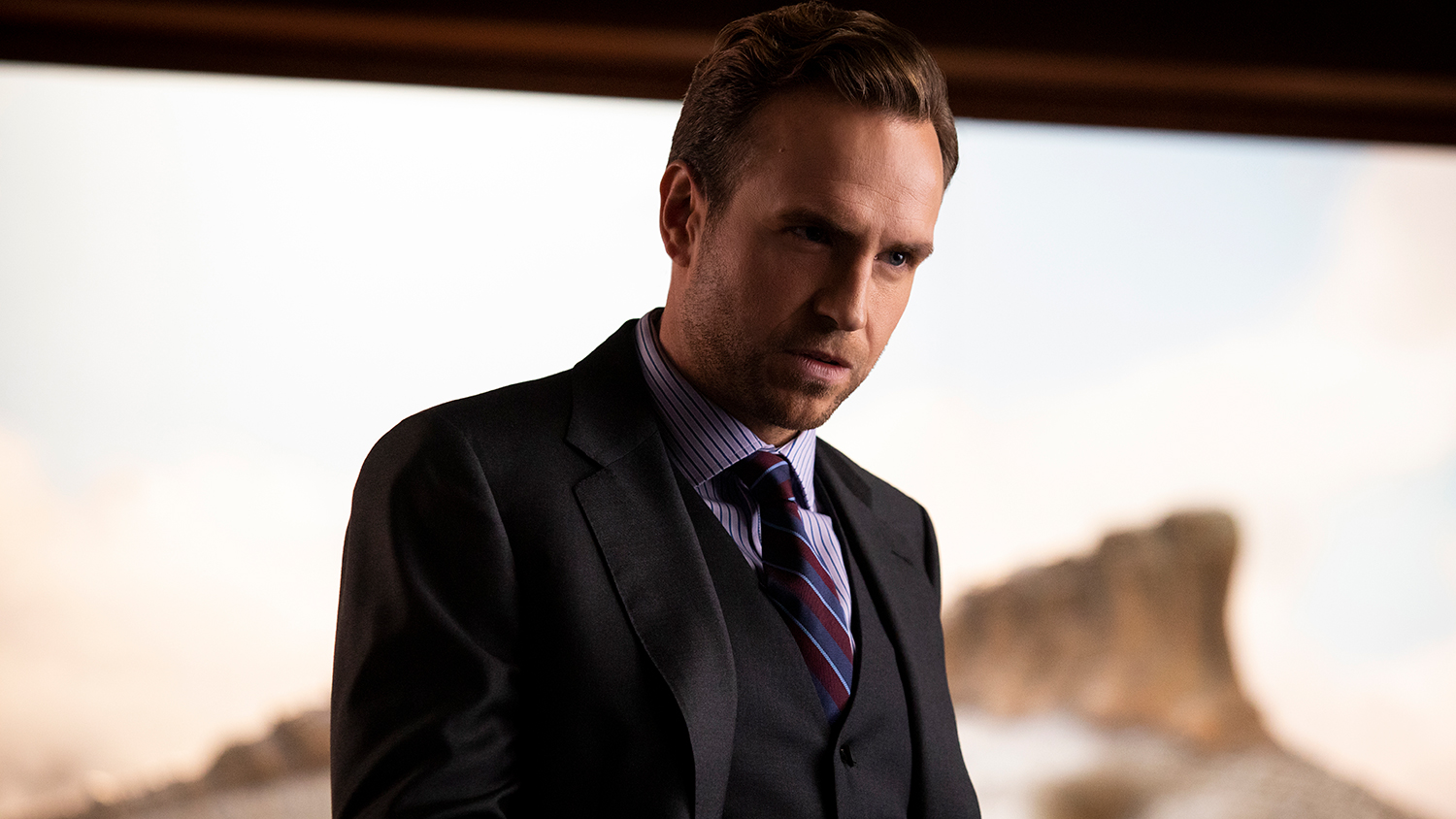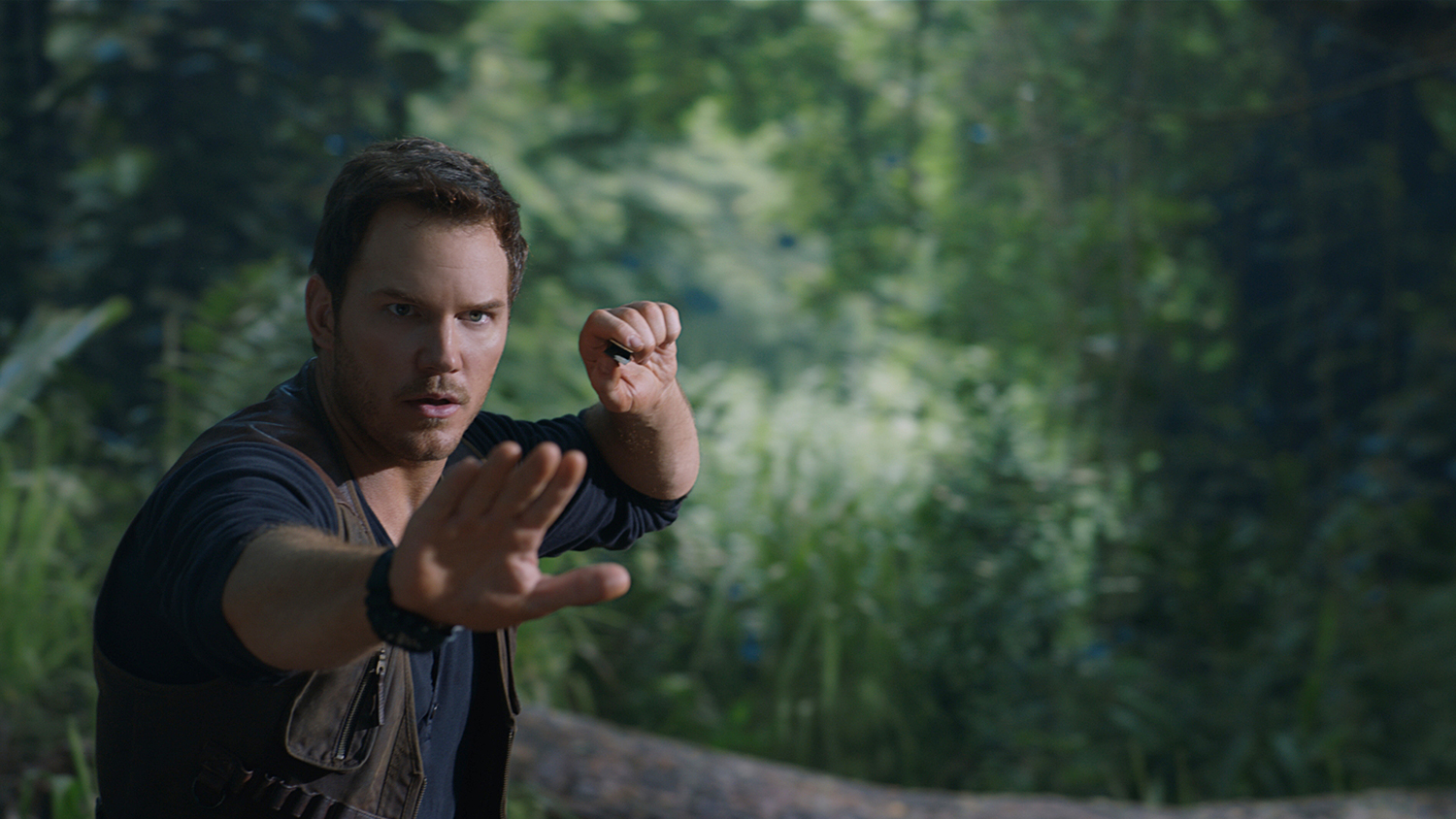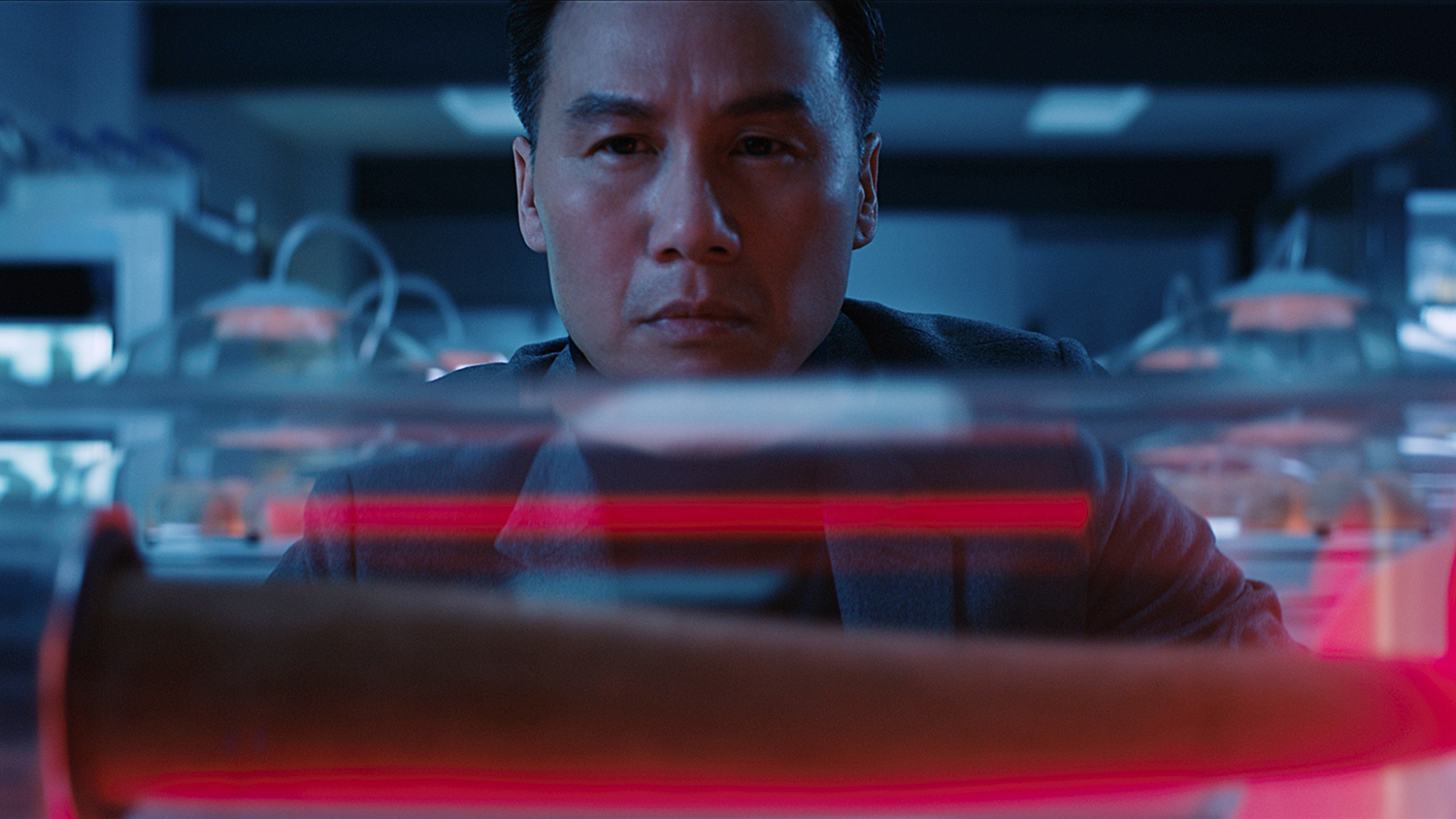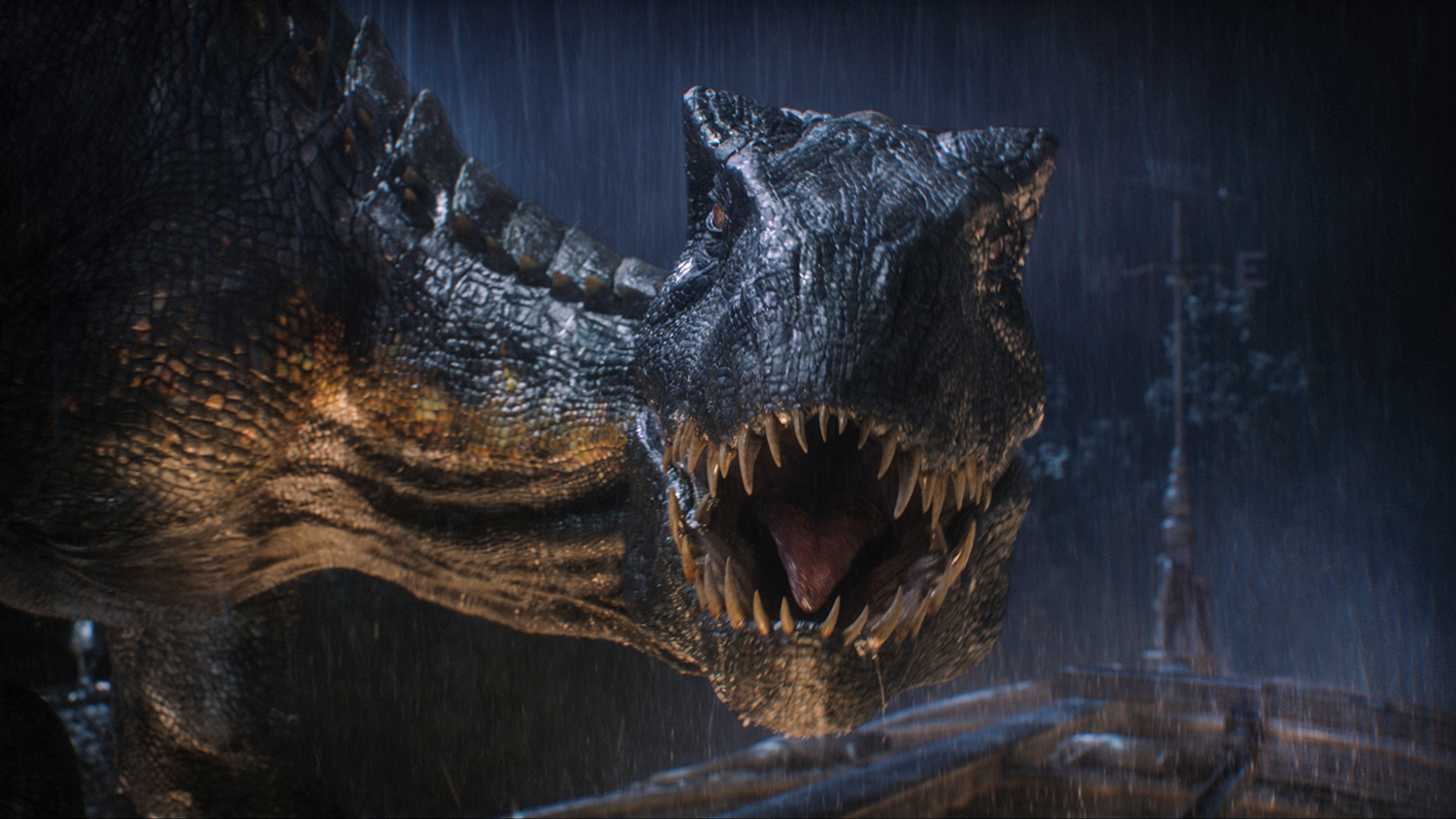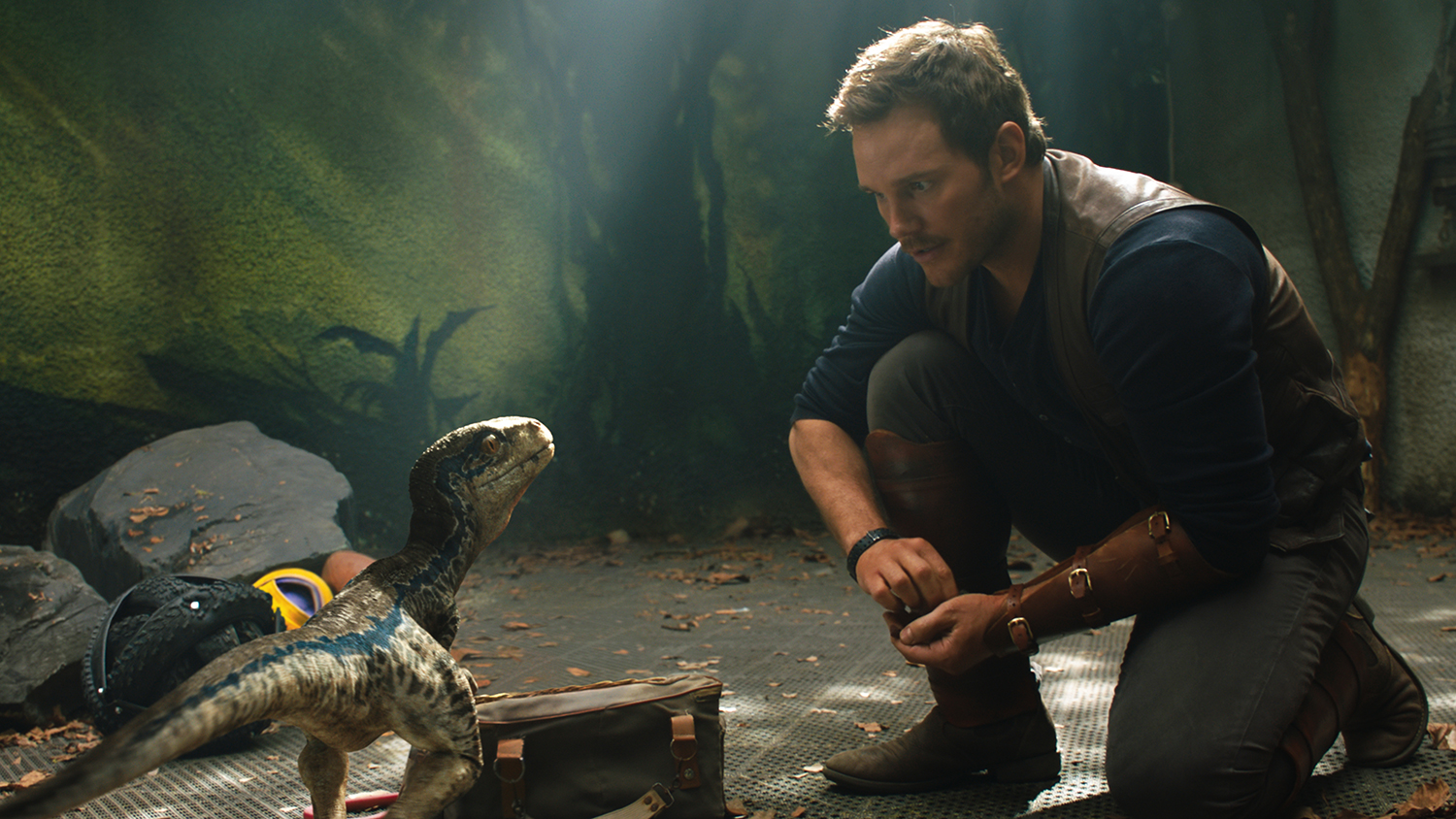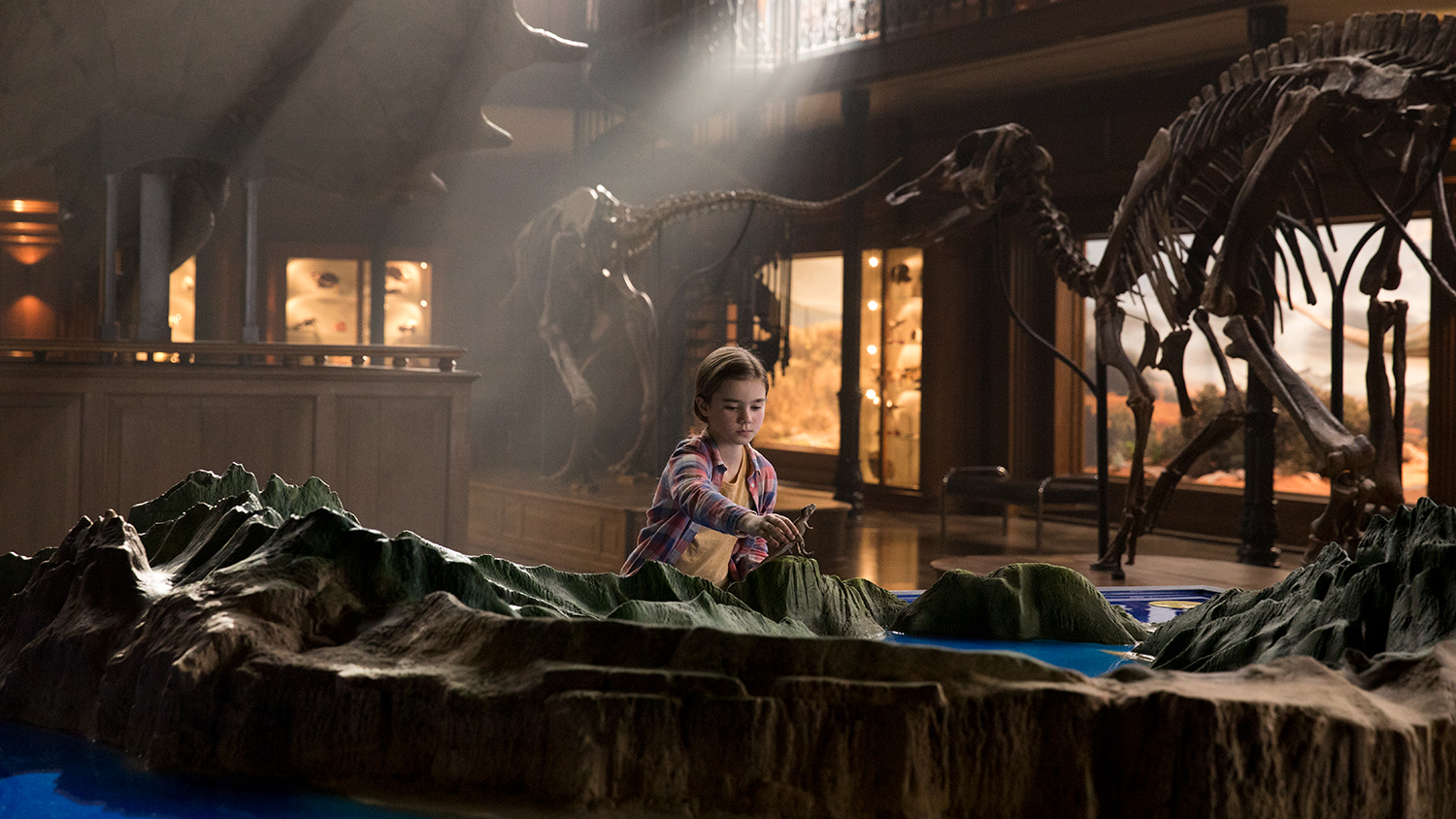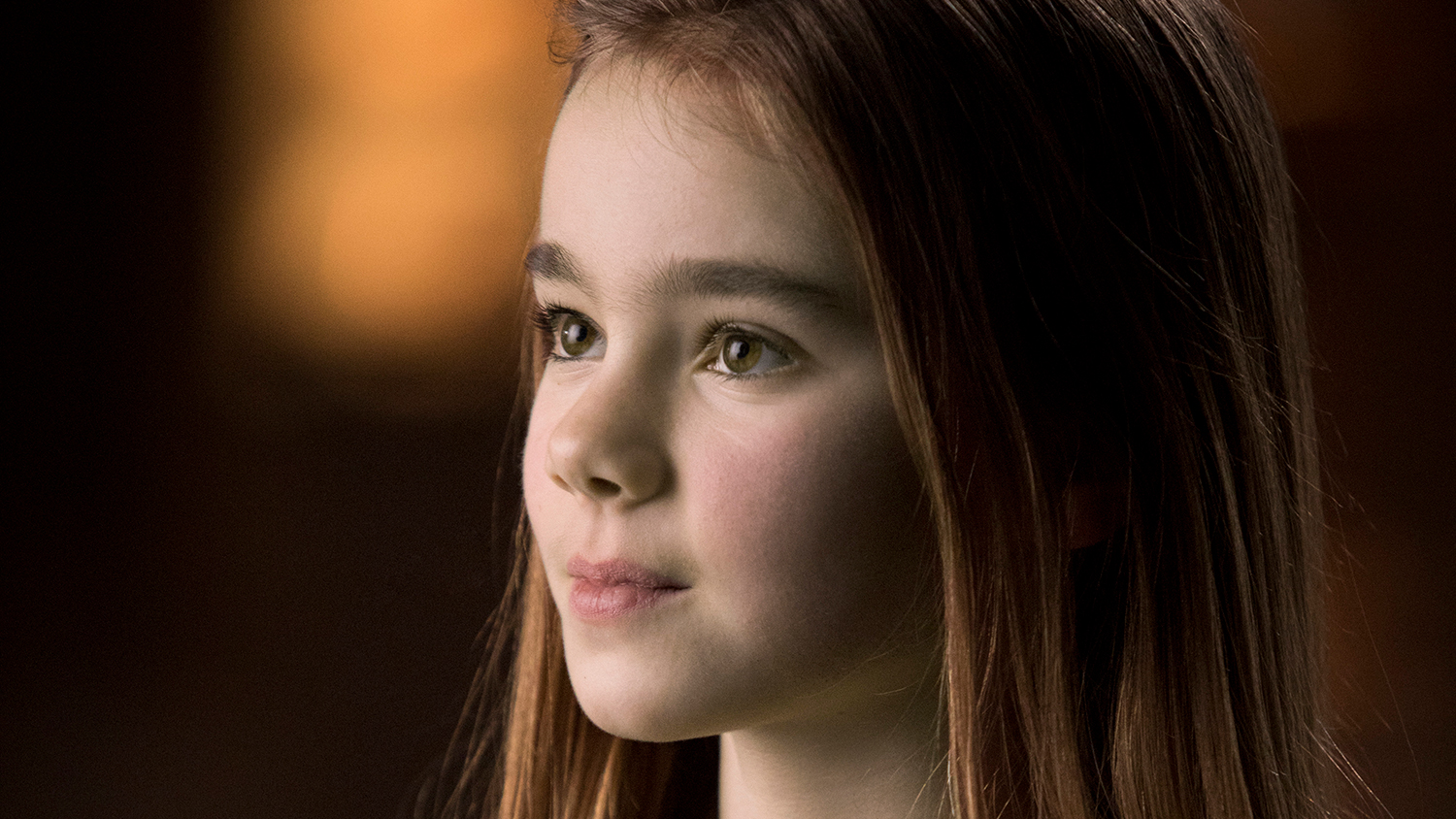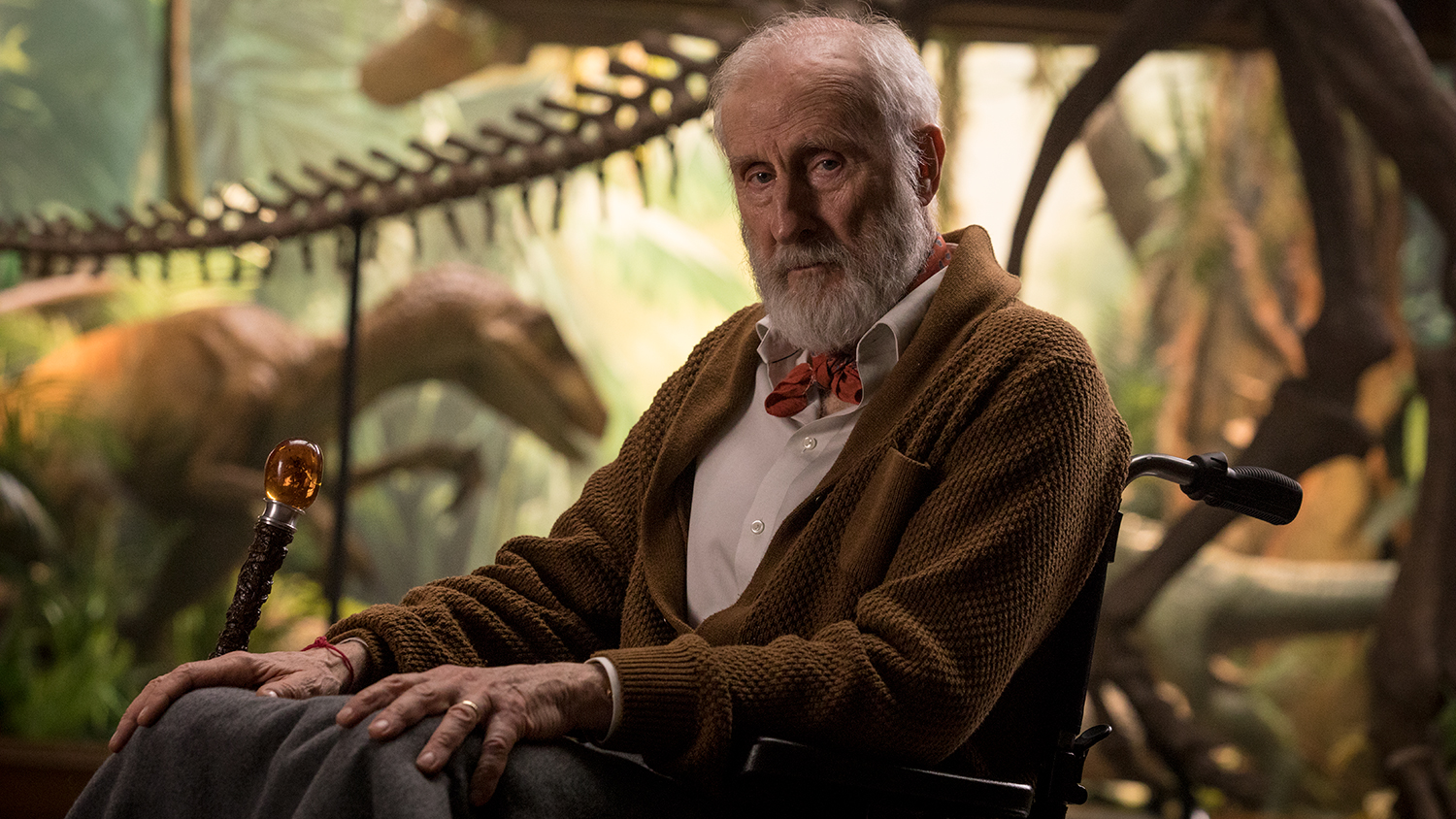The formula for the Jurassic Park films has always been relatively simple: Take an island full of dinosaurs, add humans, and let chaos ensue.
The recipe has been tweaked a bit here and there, but the fundamental ingredients have always remained constant — much like audiences’ excitement for the films, which has made the Jurassic Park franchise one of Hollywood’s highest-grossing series ever.
While it would be difficult to match the success of 2015’s record-breaking blockbuster Jurassic World, there’s a lot to like about the latest installment of the franchise, Jurassic World: Fallen Kingdom, which lacks its predecessor’s sense of wonder, but offers a darker, more intense adventure than previous films.
Directed by J.A. Bayona, Jurassic World: Fallen Kingdom brings back Jurassic World stars Chris Pratt and Bryce Dallas Howard as dinosaur behaviorist Owen Grady and former park operations manager Claire Dearing, respectively. The pair are recruited to rescue the remaining dinosaurs of Isla Nublar after the island’s volcano suddenly becomes active, but their mission takes a deadly turn when they get caught up in a diabolical scheme to weaponize the surviving dinosaurs.
Bayona is best known for his work in moody horror films, with 2007’s The Orphanage first catching the attention of critics and audiences, and 2016’s A Monster Calls showcasing his knack for dark fantasy and effects-driven scares. Those skills are on full display in Fallen Kingdom, which feels significantly darker than Jurassic World and any of the earlier Jurassic Park films, both in its palette and its overall tone.
There’s a lot to like about the latest installment of the franchise.
Where many of the earlier films were satisfied to leave the scares to the dinosaurs, Fallen Kingdom features some of the franchise’s most overtly villainous human characters so far, with motivations far more sinister than the usual, theme-park-related aspirations. After four films that exhaustively explored just about every corner of the dinosaurs-as-attractions premise, the shift in theme gives Fallen Kingdom a unique feel in the franchise, but it’s likely to polarize fans with its willingness to abandon some of the series’ more traditional emotional cues.
Although 2015’s Jurassic World was essentially a reboot of the franchise, its success in capturing the sense of wonder and beauty in the notion of bringing dinosaurs back from extinction — before all of the running and screaming, that is — was a big part of what worked about the movie. Of all the films so far, it was the closest in spirit to Steven Spielberg’s franchise-spawning Jurassic Park, and like that 1993 film, Jurassic World kindled that sense of amazement with breathtaking visual effects and cinematography.

Fallen Kingdom feels like a smaller movie than Jurassic World (or Jurassic Park, for that matter), as it doesn’t seem interested in evoking that sense of wide-eyed astonishment at dinosaurs walking among us. Instead, it wants to show audiences the terrifying possibilities in mixing dinosaurs with mankind’s worst impulses. The movie’s protagonists spend as much time avoiding the jaws and claws of dinosaurs as they spend hiding from the guns of mercenaries and the machinations of evil men in Fallen Kingdom, making for a distinctly different approach to the premise than previous films have taken — and one that’s likely to generate some strong reactions from its audience.
Both Howard and Pratt seem comfortable in returning to their Jurassic World characters, but their roles don’t hold much in the way of surprises in Fallen Kingdom. Howard’s character has warmed a bit since the events of the previous film, and Pratt’s character appears to have picked up some serious hand-to-hand combat skills, but otherwise it’s running, jumping, and dinosaur-evading business as usual for both actors, who have the charisma to keep things entertaining even when the events feel familiar.
Fallen Kingdom is a masterpiece of visual effects that makes every scene look fantastic.
Although the newcomers to the franchise in Fallen Kingdom all do well in their roles, the film doesn’t offer any truly standout performances. It’s nice to see Jeff Goldblum reprise his original franchise role as Dr. Ian Malcolm, but even his part feels more decorative than necessary.
As with all of the films in the Jurassic Park franchise, Fallen Kingdom is a masterpiece of visual effects that makes every scene look fantastic, even in the story’s most terrifying moments. The dinosaurs are not only amazing to watch in action, but also rendered with a level of detail that makes each dinosaur distinct, even when the action is at its most hectic. In other films, digitally created creatures often blur together when they tussle or otherwise group up closely in a scene, but the level of attention they’re paid in Fallen Kingdom — and all of the Jurassic Park movies, for that matter — goes a long way toward making them viable characters in the story.
Still, despite the fresh spin on the Jurassic Park franchise that Fallen Kingdom provides, the film falls a little short when it comes to engaging with the deeper philosophical questions it brings up.
Bayona’s dark tone gives the ethical issues explored by the film the perception of extra weight, but the story stops short of actually dealing with all of the overarching moral dilemmas its characters face. The question of whether humanity should let the dinosaurs die off again or save them, possibly threatening our own existence in doing so, is brought up over and over in the film, but never explored any more deeply than to wonder aloud about the right decision. The moral issues surrounding cloning — as it pertains to dinosaurs and humans — are introduced at various points but never tackled with any sincere narrative effort.
Fallen Kingdom is an ambitious film, certainly. It succeeds in bringing the Jurassic Park franchise in a new direction and offers a peek at the wider storytelling potential of the films, but it stumbles a bit in its efforts to use that premise as a vehicle for exploring more cerebral, philosophical themes. That said, it’s just as beautiful a film to behold as its predecessors were in their time, even if it filters its dinosaur-filled world through a dark lens.
While the film is certain to have a fair share of detractors who feel the absence of wonder a little too acutely in Fallen Kingdom, the story’s willingness to take the franchise in new directions feels like a risk worth taking, and the final product is a visual spectacle that’s well worth experiencing.
